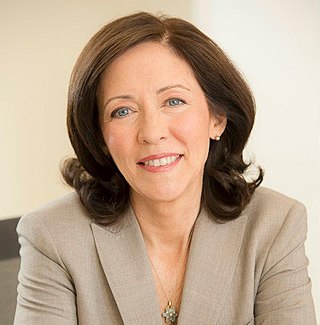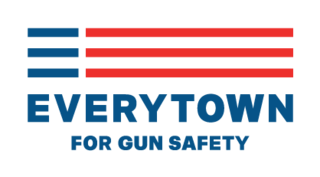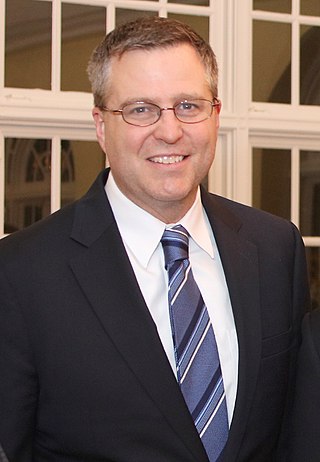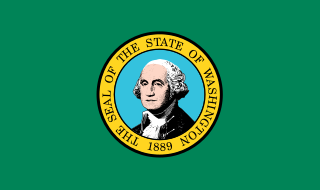
Maria Ellen Cantwell is an American politician and former businesswoman serving as the junior United States senator from Washington since 2001. A member of the Democratic Party, she served in the Washington House of Representatives from 1987 to 1993, and in the United States House of Representatives from Washington's 1st congressional district from 1993 to 1995.

Timothy Donald Eyman is an American anti-tax activist and businessman.

In California, a ballot proposition is a referendum or an initiative measure that is submitted to the electorate for a direct decision or direct vote. If passed, it can alter one or more of the articles of the Constitution of California, one or more of the 29 California Codes, or another law in the California Statutes by clarifying current or adding statute(s) or removing current statute(s).

Christine Gregoire is an American politician who served as the 22nd governor of Washington from 2005 to 2013. A member of the Democratic Party, she defeated Republican candidate Dino Rossi in 2004, and again in 2008. She is the second female governor of Washington. Gregoire chaired the National Governors Association for the 2010–2011 term. She also served on the Governors' Council of the Bipartisan Policy Center in Washington, D. C.
In the politics of the United States, the process of initiatives and referendums allow citizens of many U.S. states to place new legislation, or to place legislation that has recently been passed by a legislature on a ballot for a popular vote. Initiatives and referendums, along with recall elections and popular primary elections, are signature reforms of the Progressive Era; they are written into several state constitutions, particularly in the West. It is a form of direct democracy.

The Libertarian Party of Washington (LPWA) is the state-affiliate of the national Libertarian Party in the state of Washington, the third-largest political party in the state and country.
Proposition B in Missouri was a failed 1999 ballot measure that would have required local police authorities to issue concealed weapons permits to eligible citizens. It was a contentious issue and was narrowly rejected at the time by the electorate, but the legislature later approved similar legislation in 2003.

Mark James DeSaulnier is an American politician who has served as the U.S. representative from California since 2015. He has represented the 10th congressional district since 2023, although it was previously numbered the 11th district for his first eight years in office. The district includes most of Contra Costa County, a suburban county in the East Bay. He has been a member of the Democratic Party since 2000; before that, he was a Republican.
Initiative 200 was a Washington state initiative to the Legislature promoted by California affirmative-action opponent Ward Connerly, and filed by Scott Smith and Tim Eyman. It sought to prohibit racial and gender preferences by state and local government. It was on the Washington ballot in November 1998 and passed with 58.22% of the vote. It added to Washington's law the following language:
The state shall not discriminate against, or grant preferential treatment to, any individual or group on the basis of race, sex, color, ethnicity, or national origin in the operation of public employment, public education, or public contracting.

Everytown for Gun Safety is an American nonprofit organization which advocates for gun control and against gun violence. Everytown was formed in 2013 due to a merger between Mayors Against Illegal Guns and Moms Demand Action for Gun Sense in America.

The 2009 Washington Referendum 71 (R-71) legalized domestic partnership in Washington state, the first statewide referendum in the United States that extended to LGBT people the rights and responsibility of domestic partnership. The bill had passed State Legislature, and it was signed into law by the Governor in May 2009, but opponents gathered enough signatures to put the measure before the voters, who returned ballots by mail over three weeks ending on November 3, 2009, approving the measure 53% to 47%. The new law went into effect 30 days later, on December 3, 2009.

Neil Conrad Parrott is an American politician who previously represented District 2A as a Republican member of the Maryland House of Delegates. He ran for the U.S. House of Representatives in Maryland's 6th congressional district in 2020 and 2022, losing both times to incumbent Democrat David Trone. On June 27, 2023, Parrott formed an exploratory committee to explore a potential third run for the district in 2024.

Gun laws in Washington regulate the sale, possession, and use of firearms and ammunition in the state of Washington in the United States.

Referendum 74 was a Washington state referendum to approve or reject the February 2012 bill that would legalize same-sex marriage in the state. On June 12, 2012, state officials announced that enough signatures in favor of the referendum had been submitted and scheduled the referendum to appear on the ballot in the November 6 general election. The law was upheld by voters in the November 6, 2012 election by a final margin of 7.4% and the result was certified on December 5.

Washington Initiative 1240 "concerns creation of a public charter school system" was an initiative that appeared on the Washington state general ballot in November 2012. Originally filed with the Washington Secretary of State on May 31, proponents and paid signature gatherers collected enough signatures to be certified for the ballot on July 25, making it one of the fastest initiatives ever to do so, at an estimated cost of more than $6 per signature. Proposed charter schools would receive public funding but not be governed by local school districts. An August 2012 financial impact study by the state Office of Financial Management estimated "an indeterminate, but non-zero, fiscal impact to local public school districts" and "known state agency implementation costs" of at least $3 million in the first five years. The initiative was approved by voters in November 2012.

Maine Question 3, formally An Act to Require Background Checks for Gun Sales, was a citizen-initiated referendum question that appeared on the Maine November 8, 2016 statewide ballot. It sought to require a background check for virtually all gun transfers in Maine, with some exceptions. As the Maine Legislature and Governor Paul LePage declined to enact the proposal as written, it appeared on the ballot along with elections for President of the United States, Maine's two United States House seats, the Maine Legislature, other statewide ballot questions, and various local elections.

California Proposition 6 was a measure that was submitted to California voters as part of the November 2018 election. The ballot measure proposed a repeal of the Road Repair and Accountability Act, which is also known as Senate Bill 1. The measure failed with about 57% of the voters against and 43% in favor.

Initiative 1639 was a Washington state ballot initiative concerning firearms regulation that was passed into law on November 6, 2018. The initiative altered the gun laws in Washington by defining the term "semiautomatic assault rifle" to include all semiautomatic rifles, raising the minimum age for purchasing semiautomatic rifles from 18 to 21. It also imposes a 10-day waiting period before being allowed to claim a rifle from a firearms dealer, and expanded background checks to include medical records requiring a waiver of HIPAA rights.

2020 Missouri Amendment 2, also known as the Medicaid Expansion Initiative, was a ballot measure to amend the Constitution of Missouri to expand Medicaid under the Affordable Care Act. The initiative was on the August 4, 2020, primary ballot and passed with 53.27% of the vote. Following similar successful ballot initiatives in other states, Republican lawmakers added work requirements to Medicaid expansions, which supporters aimed to prevent by proposing state constitutional amendments for future Medicaid expansions. Opponents sued to prevent the measure from being voted on, but courts ruled in favor of it. The measure was supported most in urban areas and opposed in rural areas. After a delay due to a lack of funding and resulting litigation, the initiative was implemented in October 2021, albeit slowly. Republican lawmakers attempted to roll back the program and add a work requirement through a state constitutional amendment, which failed after a related Supreme Court decision seemed to prevent its implementation.
















